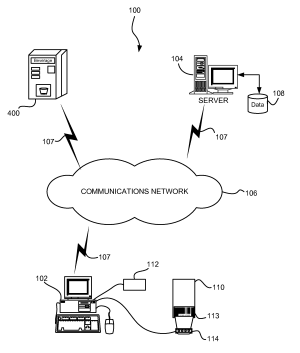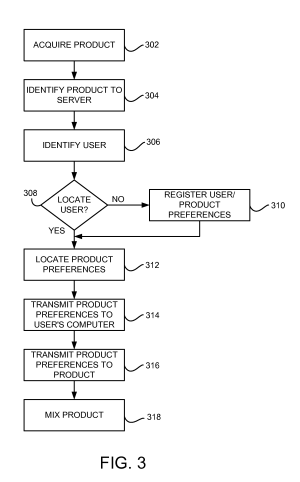
This February, Garmin International got sued (PDF) by inventor Leigh Rothschild and his patent-holding company, Rothschild Connected Devices Innovations LLC (RCDI). RCDI had already sued 68 other companies. A few weeks later, Rothschild's lawyer got in touch. He wasn't interested in discussing the technology behind his client's two patents, which describe making customized mixed beverages. Instead, he asked Garmin to get on board with Rothschild's "early settlement program" for a fast payout of $75,000.
Garmin didn't pay up. Instead, the company's outside counsel, Rachael Lamkin, sent a letter to Rothschild's lawyer, explaining that his patents on a "system and method for creating a personalized consumer product" weren't valid and ran afoul of Section 101 of the US Patent laws. That's the section that bars patents that are overly abstract, including "do it on a computer" type patents.
"Whether or not systems and methods for generating customized products are patent-eligible is a well-trodden question, repeatedly decided in the negative," Lamkin informed him, citing several earlier legal cases.
A few weeks after the lawsuit was filed, Lamkin informed RCDI's lawyer that if she didn't hear back, she would file a motion to invalidate the patent at 5:00pm. An hour before that deadline, RCDI dropped its lawsuit without warning.Garmin didn't celebrate a victory against a company that had sued dozens over similar claims. Instead, the GPS and navigation company is seeking about $20,000 in legal fees and has asked US District Judge Rodney Gilstrap for a discovery order to learn more about how RCDI has dealt with the dozens of other companies it sued.
"RCDI knows that its patents cannot survive an adjudication on the merits of a Section 101 motion, and yet RCDI keeps filing meritless nuisance suits," writes Lamkin in a motion (PDF) filed last week. "This is not the case where a plaintiff adjudicated and lost a case on the merits that was 'not guaranteed.' This is the case where the plaintiff refuses to adjudicate on the merits because he knows a loss is guaranteed."
Lamkin's motion also argues that RCDI is deceiving the court about its own address, and included floor plans of its claimed office facility to make the point. RCDI claims its address is in Suite 400 at the Meridian Business Center in Plano, Texas, but maps of the Meridian facility indicate that "Suite 400" doesn't even exist.
Plano, just north of Dallas, is within the Eastern District of Texas, which continues to be a popular spot for patent plaintiffs.
“My passion is inventing”
Rothschild's dispute with Garmin began on February 24, when he accused Garmin of infringing two of his patents, numbered 7,899,713 and 8,788,090. Both patents are called "System and method for creating a personalized consumer product." The claims describe getting a user's product preferences and then "mixing at least one element" of the product with "an actuator or mixing device." The patent's specification describes ordering personalized flavored beverages over the Internet. A flow chart, at right, explains a series of choices that end in "mix product."

In that Coca-Cola case, Rothschild was trying to keep a case from being moved out of Florida. In it, he declared under penalty of perjury that he managed RCDI's affairs from Miami-Dade County, where he has lived for over 40 years.
That could be problematic for his lawsuit against Garmin. In its complaint, RCDI describes the Plano office as the company's "principal office," making Rothschild's sworn declaration about his Florida management habits a sanctionable misrepresentation, in the view of Garmin's lawyer. RCDI's incorporation documents describe Rothschild as a Texas resident. "Unless Rothschild has dual citizenship, that also appears to be false," writes Lamkin. She continues:
Patent monetization is perfectly legal, as is the creation of limited liability corporations. Garmin is not questioning those broad business decisions. What is and should be scrutinized is the setting up of shell corporations by false representations in order to repeatedly assert weak patents for nuisance value settlements... RCDI forwent its $75,000 settlement in order to secret Garmin's Section 101 motion because RCDI knows its patents are patent ineligible. And yet the graft continues.
The motion argues that Garmin should be awarded $20,500, or, in the alternative, allowed to proceed with discovery about RCDI cases that may have resulted in quick dismissals.
Garmin declined to comment about the litigation. Lamkin declined to comment on the merits of the motion, but said via e-mail that it is "incumbent on counsel to proffer more than argument in these types of litigations." She added:
Here, the solutions we proffered include additional, narrow and targeted discovery and notice to other defendants. Whether Judge Gilstrap believes this case rises to the level of a nuisance suit, or whether he believes the solutions we have proffered are appropriate or helpful remains to be seen.
RCDI's lawyer didn't immediately reply to a request for comment. The company has not yet responded to Garmin's motion.
Internet Drink Mixer vs. the world
One of the two patents asserted against Garmin was featured in the Electronic Frontier Foundation's "Stupid Patent of the Month" series, in which EFF lawyer Daniel Nazer noted that the patent amounted to nothing more than an "Internet drink mixer." In its lawsuit against Garmin, RCDI says that Garmin activity trackers like the Vivoactive device infringe its claims on a "personalized consumer product."
RCDI has used the same patent to sue Toshiba (PDF), seeking a royalty over the remote operation of cameras. It also sued Sharp (PDF) for sending scanned documents to a mobile device.
Rothschild, who was promoted by Intellectual Ventures in an "Inventor Spotlight" blog post, has said he is concerned that Congress might tweak patent laws without properly considering the viewpoint of inventors like himself.
“They [Congress] don’t have the individual inventor perspective," said Rothschild. "Our voices are being drowned out by far bigger lobbying contingents... Would you take away the right to patent inventions that have been the core of American innovation, such as the light bulb or the telephone?"
Listing image by USPTO
reader comments
73